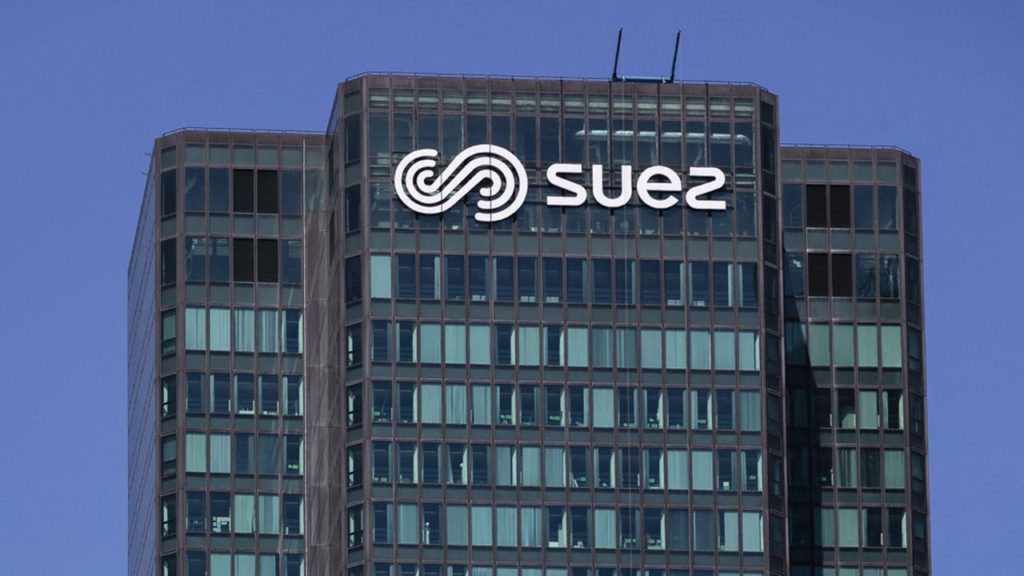On August 30, French water and waste management firm Veolia launched its latest attempt to take over its longtime rival Suez, offering to buy a 29.9% stake from parent company Engie at €15.5 a share as an initial step in a plan to eventually buy the whole firm.
The potential purchase faces significant headwinds and is likely to set off squabbles over price, antitrust concerns and more—Suez chief executive Bertrand Camus wasted no time condemning the offer, dubbing it “particularly hostile”, “disastrous” for France and “opportunistic”.
Veolia’s longstanding dream
If the timing is no accident—Suez’s share price has declined sharply during the coronavirus pandemic, though the company looks set for a significant recovery in the second half of 2020—Veolia has coveted Suez for over a decade. It publicly expressed interest in Suez’s international water and waste operations back in 2006, during the negotiations which eventually ended up in a merger of equals between Suez and Gaz de France to form the energy giant now known as Engie.
In 2012, meanwhile, the two longstanding competitors held preliminary talks on a potential merger as Veolia struggled to cope with an €800 million write-down, a €5 billion fire sale of assets and a boardroom coup. The talks fell apart, in large part due to serious concerns over whether a Veolia-Suez fusion would receive a green light from antitrust authorities.
Bertrand Camus’s warnings that Veolia’s takeover bid could paralyze Suez for as long as 18 months seem prescient. On top of tough negotiations over price—Engie reportedly believes that Veolia is lowballing its bid and is courting other options, including Suez buying back its share of the company—there’s no indication that European competition authorities will be any more likely to let the tie-up go ahead than they were eight years ago.
Warning signs from the past
In fact, the EU’s recent track record on major mergers suggests that any deal between Veolia and Suez would require lengthy negotiations and significant spinoffs. Veolia has tried to sell the proposed takeover as the opportunity to create a French national champion which could make headway against rising Chinese competition.
French tech darling Alstom and German engineering giant Siemens, however, hung their hats on the same exact argument when they, along with the French and German governments, tried to convince Brussels to allow them to create a European rail champion. The two train manufacturers argued that joining forces was the only way that they could compete with the mammoth market share of China Railway Rolling Stock Corporation (CRRC), the state-owned firm with 30% of the global rail market and higher revenue than Alstom and Siemens combined.
Paris and Berlin imagined that the marriage between Alstom and Siemens would usher in a new golden age of European industrial policy, with EU competition rules taking a back seat to allow European champions to spring up in countless sectors. Instead, EU Competition Commissioner Margrethe Vestager vetoed the union in February 2019, arguing that it would have an unacceptable chilling effect on competition—specifically regarding signaling systems and high-speed trains—and pushed back against the notion that the fusion was necessary to keep up with Chinese competition.
Rather than pioneering a new breed of pan-European industrial giant, the failed Alstom-Siemens merger inaugurated a period of intense scrutiny from European antitrust regulators: in June 2019, Brussels blocked a landmark merger between Germany’s Thyssenkrupp and India’s Tata Steel on competition grounds, and has since launched high-profile antitrust probes into tech giants including Google and Apple.
Can Veolia convince regulators the deal is worthwhile?
This backdrop of an increasingly aggressive antitrust authority under Vestager’s leadership raises serious questions about whether Veolia would be allowed to acquire Suez. Veolia Chief Executive Antoine Frérot has highlighted the overall fragmentation of the world’s water and waste management sector to bolster his argument that consolidation is necessary, pointedly noting that a Veolia-Suez tandem would still hold less than 5% of the global market.
The two firms’ operations outside France, however, are largely complementary and have never been the sticking point for competition watchdogs. The problem, both during the collapsed talks in 2012 and with Veolia’s latest takeover bid, has always been their home market, where a merged Veolia-Suez would corner a market share of roughly 60%.
Veolia has already accepted that it would have to spin off key assets in order to have a prayer of getting the acquisition rubber-stamped by European competition authorities. This, at a minimum, would include all of Suez’s French water activities, including its associated engineering and R&D teams—something that’s particularly complicated since the French government considers these strategic assets that must remain in French hands.
Meridian, a French infrastructure fund, is reportedly interested in taking on Suez’s French water activities, but the prevailing wind from competition authorities in Brussels suggests their approval might be contingent on further punishing conditions which could strip away most of the deal’s economic benefit.
Making matters worse, these economic benefits appear limited. The two firms’ relatively low level of geographical overlap outside France means that cost synergies from the merger would be limited—Barclays’ research has estimated it at a mere €500 million, only 1.5% of Veolia and Suez’s combined operating costs. What’s more, Bertrand Camus has warned that spinning off French water assets to pacify antitrust concerns would whittle away synergies the group already enjoys.
It’s not surprising that Veolia sees the current economic downturn as a chance to acquire the firm it’s been interested in for nearly fifteen years. Engie—fresh off the heels of a boardroom battle that ousted CEO Isabelle Kocher, and coping with issues including persistently weak stock market performance—is open to selling its stake in Suez. Depressed share prices due to the pandemic make Veolia’s bid look generous at first glance, even though it’s below Suez’s February trading. The fundamental issues which have stymied a Veolia-Suez merger in the past, however— from limited financial synergies to serious antitrust concerns— are as pertinent as ever.

